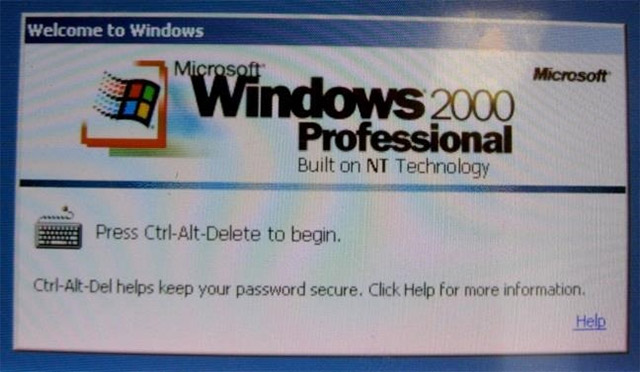What is Unix and why is it important?
Most of the current operating systems can be grouped into two different branches.Besides operating systems based on Microsoft Windows NT, nearly every other operating system is a "descendant" of Unix.
Operating systems like Linux, Mac OS X, Android, iOS, Chrome OS or Orbis OS are used on the PlayStation 4, or even any software running on your router - all This operating system is often referred to as 'Unix-like' operating system because it is developed based on Unix.
What is UNIX?
UNIX is an operating system developed in the 1960s. It is a multitasking, multi-user and stable system for servers, workstations or laptops.UNIX systems also have a graphical interface (GUI) similar to Microsoft's Windows, making it easy to use. However, you still need a lot of knowledge required for UNIX operations, which are not described by a graphical program, or without a window interface, for example in a telnet session.
The design of Unix still exists today
As you may not know, Unix was developed in AT & T's Bell Labs in the mid-1960s. The initial release of Unix had a number of important design attributes that currently exist on some popular operating systems. nowadays.
One of them is Unix philosophy in creating small utilities, modules-like utilities that work together and accomplish a certain task.
Unix also has a unique file system that programs use to communicate with each other.This is why there is the appearance of the term 'everything is a file' on Linux.This includes hardware devices and special files that provide system or other data information.That's why only Windows has a drive letter, which is a feature that it inherited from DOS.On other operating systems, all files on the system are part of a single directory hierarchy.

Search for descendants of Unix
Just like any other historical heritage.After more than 40 years of history, Unix left us with a treasure trove of great valuable contributions.To simplify things, we can combine the descendants of Unix into two groups.
A Unix descendant group has been developed in the academy environment.The first is BSD (Berkeley Software Distribution), an Unix-like operating system and open source.BSD exists until today through FreeBSD, NetBSD and OpenBSD.NeXTStep is also an original BSD-based operating system, Apple's Mac OS X is based on Mac OS X's NeXTStep and iOS. Many other operating systems, including the Orbis OS used on the PlayStation 4, also Be inspired by the BSD operating system types.
Richard Stallman's GNU project was started as a response to AT & T's increasingly restrictive Unix license terms.MINIX is a Unix-like operating system created for educational purposes, and interestingly, Linux is inspired by MINIX.Linux we know today is really GNU / Linux, because it is made up of Linux kernel and a lot of GNU utilities.GNU / Linux is not directly developed from BSD, but it comes from the design of Unix and originates from academia.Many operating systems today, including Android, Chrome OS, SteamOS operating systems and a large number of other popular operating systems are built on Linux.
On the other hand, there are commercial versions of Unix operating systems.AT&T UNIX, SCO UnixWare, Sun Microsystems, HP-UX, IBM AIX, SGI IRIX - many large corporations want to create and license their own Unix versions.Although these operating systems are not very popular, some are still in use today.

The rise of DOS and Windows NT.
Many people had hoped that Unix would become the global industry standard operating system, but eventually DOS computers and "IBM PC compatible" exploded and became more popular.DOS of Microsoft has become one of the most successful operating systems.In fact, DOS was developed independently rather than relying on Unix (which is why Windows uses a backslash () for file paths while other operating systems use diacritics. forward slash (/)).Later versions of Windows inherited DOS, like BSD, Linux, Mac OS X and other descendant operating systems that inherited many aspects of the design of Unix.
Windows 3.1, Windows 95, Windows 98 and Windows ME are all based on DOS development.Microsoft was on the right track when it came to developing a more stable and modern operating system at the time, which it named Windows NT, short for 'Windows New Technology'.Windows NT finally found its way to universal computer users (Windows XP), but it was also available to corporate users (Windows 2000 and Windows NT before).
All Microsoft operating systems today are built on the Windows NT kernel.Windows 7, Windows 8, Windows RT, Windows Phone 8, Windows Server and the Xbox One operating system all use the Windows NT kernel.Unlike most other operating systems, Windows NT is not developed as a 'Unix-like' operating system.
To maintain compatibility with old DOS and Windows software, Windows NT inherits many DOS conventions such as drive letters, backslashes for file paths and forward slashes for command line conversions. .

Why is Unix important?
Have you ever noticed the file or terminal system of Mac OS X and noticed the similarity of OS X with Linux as well as how different they are from Windows?Yes, this is why both Mac OSX and Linux are 'Unix-like' systems.
Knowing a bit of this history helps you understand what 'Unix-like' operating systems are, and why so many operating systems seem to be the same while Windows has its own style.This explains why when using a terminal on Mac OS X we will feel as familiar as a geek Linux, while Command Prompt and PowerShell on Windows are very different from the above command line environments.
See more :
- 10 PC operating systems can replace Windows
- Interesting operating systems may be unknown to you
- What do you understand about Windows operating system?
- History of Microsoft Windows operating system throughout the ages